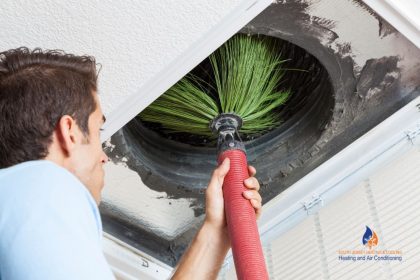The Invisible Threat: How Poor Indoor Air Quality Is Affecting Your Health
The Invisible Threat: How Poor Indoor Air Quality Is Affecting Your Health

Indoor air quality often goes unnoticed—but it plays a critical role in your health and comfort. Whether at home or at work, the air you breathe every day may be filled with invisible contaminants that can lead to both immediate symptoms and serious long-term health problems. Let’s take a closer look at the hidden dangers of poor indoor air quality and how you can protect yourself and your loved ones.
What Defines “Poor” Indoor Air Quality?
Indoor air quality refers to the condition of the air inside buildings, especially in relation to the health and comfort of the people within them. “Poor” air quality typically means the presence of pollutants at concentrations that negatively affect well-being. This can result from insufficient ventilation, contaminated HVAC systems, or indoor activities that release harmful particles or gases.
Common Indoor Pollutants
Most indoor spaces contain a mix of airborne contaminants. Common culprits include:
- Dust and dust mites
- Volatile organic compounds (VOCs) from paints, cleaners, and furniture
- Mold and mildew, especially in damp areas
- Pet dander and hair\
- Tobacco smoke and cooking emissions
- Pollen and other outdoor allergens brought in on clothing and shoes
Without proper filtration and ventilation, these pollutants can accumulate quickly—especially in tightly sealed buildings.
The Health Impact: Immediate and Long-Term
Breathing in polluted air can cause a range of health issues. Short-term symptoms often mimic allergies or the common cold: sneezing, coughing, headaches, fatigue, and eye or throat irritation. Over time, exposure to indoor pollutants has been linked to chronic respiratory conditions like asthma, bronchitis, and even cardiovascular disease.
Who’s Most at Risk?
While everyone is affected by poor air quality, certain populations are more vulnerable. Children’s lungs are still developing, making them more sensitive to airborne toxins. Older adults and people with pre-existing respiratory or heart conditions are also at higher risk. Even healthy individuals can experience worsened symptoms with prolonged exposure.
How to Improve Indoor Air Quality
Improving the air you breathe doesn’t always require a major renovation. Here are some simple yet effective steps you can take:
- Replace HVAC filters regularly
- Use HEPA-grade air purifiers
- Keep humidity levels in check to discourage mold growth
- Limit use of harsh chemicals indoors
- Ensure your ventilation system is functioning properly
- Schedule professional duct cleaning or HVAC maintenance
Southern NJ Commercial HVAC pros know how essential clean air is to your well-being. Don’t ignore the signs—protect your space, your employees, and your family from the invisible threats floating through the air.
Call us at South Jersey Heating and Cooling today for indoor air quality solutions in Southern NJ that make a real difference.








